The Gift of Nature Conservation
by Katie O'Sullivan
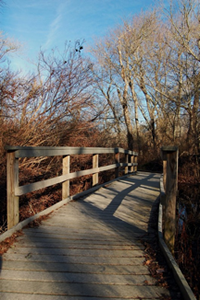
Photograph by Claudia Robinson www.dflyphotography.blogspot.com
Cape Cod is teeming with natural beauty and wildlife, from our vast stretches of sandy beaches to the white cedar swamps on the Outer Cape to the migrating shorebirds out on Monomoy Island. Our unique environment is what makes us a tourist destination as well as a great year-round place to live, play and work.
There are many individuals and organizations who strive to keep Cape Cod beautiful, preserving our land and history for future generations to appreciate and enjoy. Some organizations are specific to certain towns, others are active Cape-wide. All of them could use our help and support.
As we ponder our gift-giving options this holiday season, why not consider making Cape-specific donations to honor a friend or loved one? Information is available at each website to make tax-deductible donations and help protect waters, wildlife, woodlands, and the quality of life on Cape Cod.
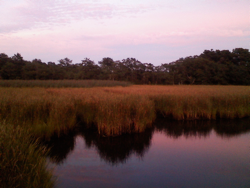
Photograph by Nicola Burnell
Local Town Conservation Groups
The Harwich Conservation Trust
A good example of one town's local grass-roots group, the HCT is a private non-profit organization, founded in 1988 by citizens concerned about the rapid pace of development threatening the natural resources of Harwich.
The Trust permanently protects natural areas by receiving land donations, holding conservation restrictions on properties, and purchasing land throughout Harwich. Each year they hold various seminars, talks, and walks that are open to the public. Event listings and donor information can be found on their website.
Conservation Groups Active
throughout Cape Cod
The Compact of Cape Cod Conservation
Trusts, Inc.
The Compact was formed in 1986 as a non-profit service center assisting six local land trusts on the Lower Cape. Its scope has since expanded to include 25 local and regional conservation groups (see sidebar for individual town conservation groups and websites.)
The group's website states, "The Compact seeks to instill and nurture a land conservation ethic in every Cape Codder. We recognize that, in the absence of individual and collective action, every parcel of open space will be developed on Cape Cod."
As a regional organization, the Compact also conducts research and promotes land projects that foster a regional approach to open space protection. The Compact is supported by dues from member land trusts, donations, and grants from private foundations.
 |
The Association to Preserve Cape Cod
The APCC works in all 15 towns of Cape Cod to protect our region, collaborating with state and regional agencies, local communities and other non-government organizations.
Currently, APCC is the host organization for the Massachusetts Bays Program, chair of the Cape Cod Business Roundtable, and participant on the state-level Zoning Reform Working Group, as well a working with the Herring River Restoration Committee.
Continuing through November, APCC is hosting a "Watershed Tour" – with forums held in various Cape towns to help citizens become more familiar with their watersheds and improve understanding of the impacts of wastewater.
The Herring River Forum will be held in Harwich on 11/18, and the Waquoit Bay Forum will be held 11/30 in Mashpee. A full schedule of forums and more information about APCC's activities, as well as opportunities for volunteers, can be found on their website.
GreenCAPE
GreenCAPE stands for the "Cape Alliance for Pesticide Education." Formed in 1998, GreenCAPE provides information about pesticides and a variety of other environmental threats.
They call themselves an "organically grown grass roots 501 (c)(3) registered non-profit organization" which coalesced to help protect the sole source aquife aquifer of Cape Cod. Their main mission is to identify the hazards of commonly used pesticides and reduce and eliminate unnecessary use of pesticides through adoption of safe alternatives.
Local Groups with Broader
Scopes and Agendas
Massachusetts Audobon Society
The local Audobon Society sanctuary is on Wellfleet Bay, encompassing 1,100 acres of salt marsh, beaches, pine woodland, freshwater ponds and heathland, and attracts a wide array of wildlife, especially songbirds and shorebirds.
Programs for both children and adults are offered throughout the year (with special children's programming during the summertime), and the nature center and trails are open almost every day of the year.
Waquoit Bay National Estuarine
Research Reserve
In 1988, the Reserve was designated a National Estuarine Research Reserve for the purpose of studying this area in order to improve the understanding of coastal ecosystems and human influences on them, then translating that information to promote more informed decision making regarding coastal resources all along the East Coast.
The Reserve's headquarters is located at the historic Sargent Estate on the bluffs of Waquoit Bay, and can be visited during scheduled monthly tours.
The Reserve promotes "stewardship and estuatine awareness through outreach activities designed to inform and involve the local citizenry," in conjunction with the related "Friends" group, Citizens for the Protection of Waquoit Bay.
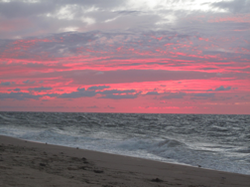
Photograph by Katie O'Sullivan
Provincetown Center for Coastal Studies
PCCS was founded in 1976 as a nonprofit organization to promote stewardship of coastal and marine ecosystems through research and educational activities.
PCCS maintains an 11,000 square foot "green" marine lab, where scientists and researchers collaborate on projects and share data.
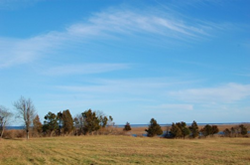
Photograph by Claudia Robinson www.dflyphotography.blogspot.com
Public activities, events and forums are ongoing throughout the year, with calendars and press releases posted on their website.
Memberships and donations fund more than a third of all programs at PCCS, from humpback and right whale research in the Atlantic to their Marine Entanglement Emergency Response Unit to watershed quality data collection.
25 local conservation organizations make up the Cape Cod Compact. By joining together, they can promote a more regional approach to the environmental problems facing the Cape communities. Support and donations are welcomed by the Compact, but also by the individual town conservation groups.
- Association to Preserve Cape Cod
- Barnstable Land Trust, Inc.
- Bourne Conservation Trust
- Brewster Conservation Trust
- Chatham Conservation Foundation, Inc.
- Coalition for Buzzards Bay
- Dennis Conservation Trust
- Eastham Conservation Foundation, Inc.
- The 300 Committee, Inc. (Falmouth)
- Friends of Pleasant Bay, Inc.
- Harwich Conservation Trust
- Mary Barton Land Trust (Cotuit)
- Massachusetts Audubon Society
- The Nature Conservancy (MA Chapter)
- Orenda Wildlife Land Trust, Inc.
- Orleans Conservation Trust
- Provincetown Conservation Trust
- Sandwich Conservation Trust
- Three Bays Preservation, Inc. (Barnstable)
- Truro Conservation Trust
- Wellfleet Conservation Trust
- The Wildlands Trust
- Yarmouth Conservation Trust
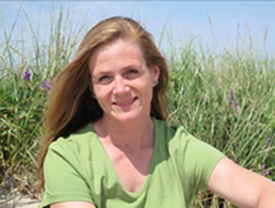
Katie O'Sullivan is the Editor of this magazine.
She lives in West Harwich with her husband, children and dogs. Her second book, Perfect Strangers, was just released by Moongypsy Press. When she's not writing, editing, or playing "Mom's Taxi," you can find her curled up with a good book or blogging about the antics of her new Puppy.
Visit Katie's website, check out her blog, and friend her on Facebook.
